Top 10 fuel management system tools for fleets
Fuel management systems improve your fleet’s fuel efficiency and reduce fuel costs. The list below covers the pros, cons and features of the top 10 options.
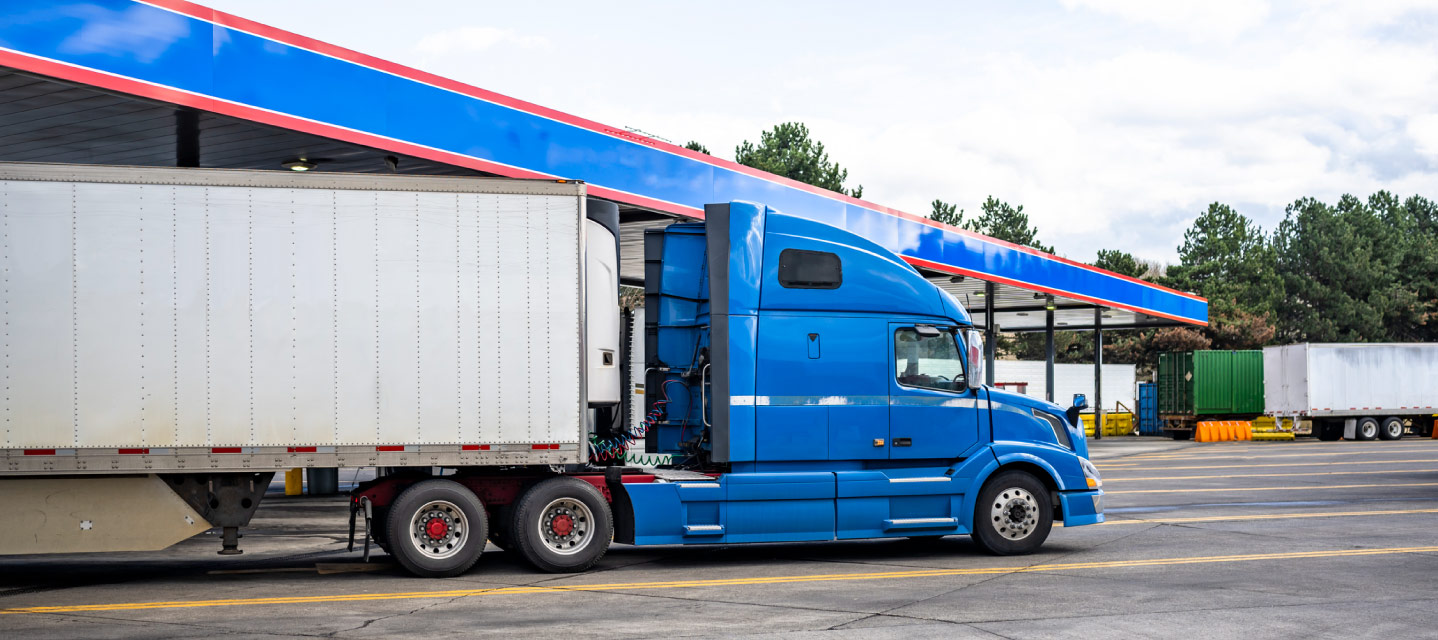
Businesses need fuel management systems that can provide accurate data about fuel consumption to achieve their fleet management goals of fuel efficiency and cost reduction.
It is essential to research fleet fuel management solutions to find one that matches your business goals and needs. Check out this list of effective tools to make an informed decision.
What is a fuel management system?
Fuel management systems are tools used by fleets to track and optimize fuel consumption. These solutions typically consist of fuel management software and hardware implemented across fleet vehicles.
Fleet fuel management solutions provide telemetric data to reduce fleet fuel costs, improve driver behavior and optimize route efficiency. They are crucial fuel management resources for most fleets.
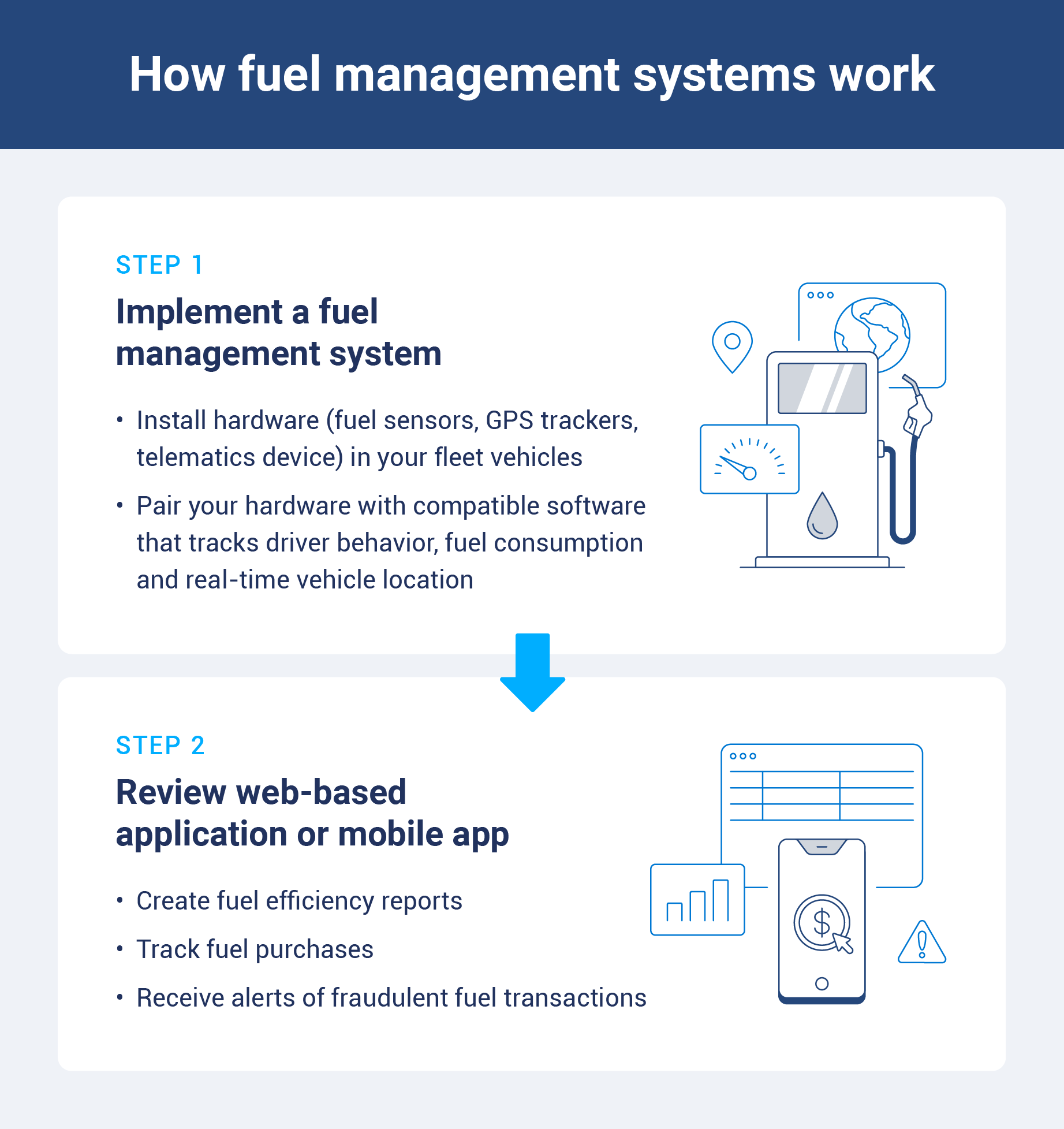
Choosing the right fuel management software is important for improving your fleet efficiency.
The best fuel management system tools
- Fuel Tracker: Free fuel tracking integration with Geotab Drive
- BlueArrow Fuel: Focuses on fuel card misuse and time theft
- Car IQ Pay: Mobile payment platform to replace fuel cards
- Coast: Visa fuel card with detailed expense monitoring software
- FuelBI: Fuel card integration with detailed fuel cost reporting
- Fuel Card Integration: Fuel card software with fraud detection
- AtoB: Visa fuel card with scalable fuel tracking software
- Ultimarc GHG Emission: Reporting software focused on emissions
- True Fuel: Analytics software that tracks driver behavior
- Idle Smart: Fuel monitoring software that reduces idle time
| Name | Fraud protection | Fuel efficiency report | Fuel card integration | Telematics integration |
|---|---|---|---|---|
| Fuel tracker | ✖️ | ✔️ | ✖️ | ✔️ |
| BlueArrow Fuel | ✔️ | ✔️ | ✔️ | ✔️ |
| Car IQ Pay | ✔️ | ✔️ | ✖️ | ✔️ |
| Coast | ✔️ | ✔️ | ✔️ | ✔️ |
| FuelBI | ✔️ | ✔️ | ✔️ | ✔️ |
| Fuel Card Integration | ✔️ | ✔️ | ✔️ | ✔️ |
| AtoB | ✔️ | ✔️ | ✔️ | ✔️ |
| Utilimarc GHG Emissions Reporting | ✖️ | ✔️ | ✖️ | ✔️ |
| True Fuel | ✖️ | ✔️ | ✖️ | ✔️ |
| Idle Smart | ✖️ | ✔️ | ✖️ | ✔️ |
Fuel Tracker
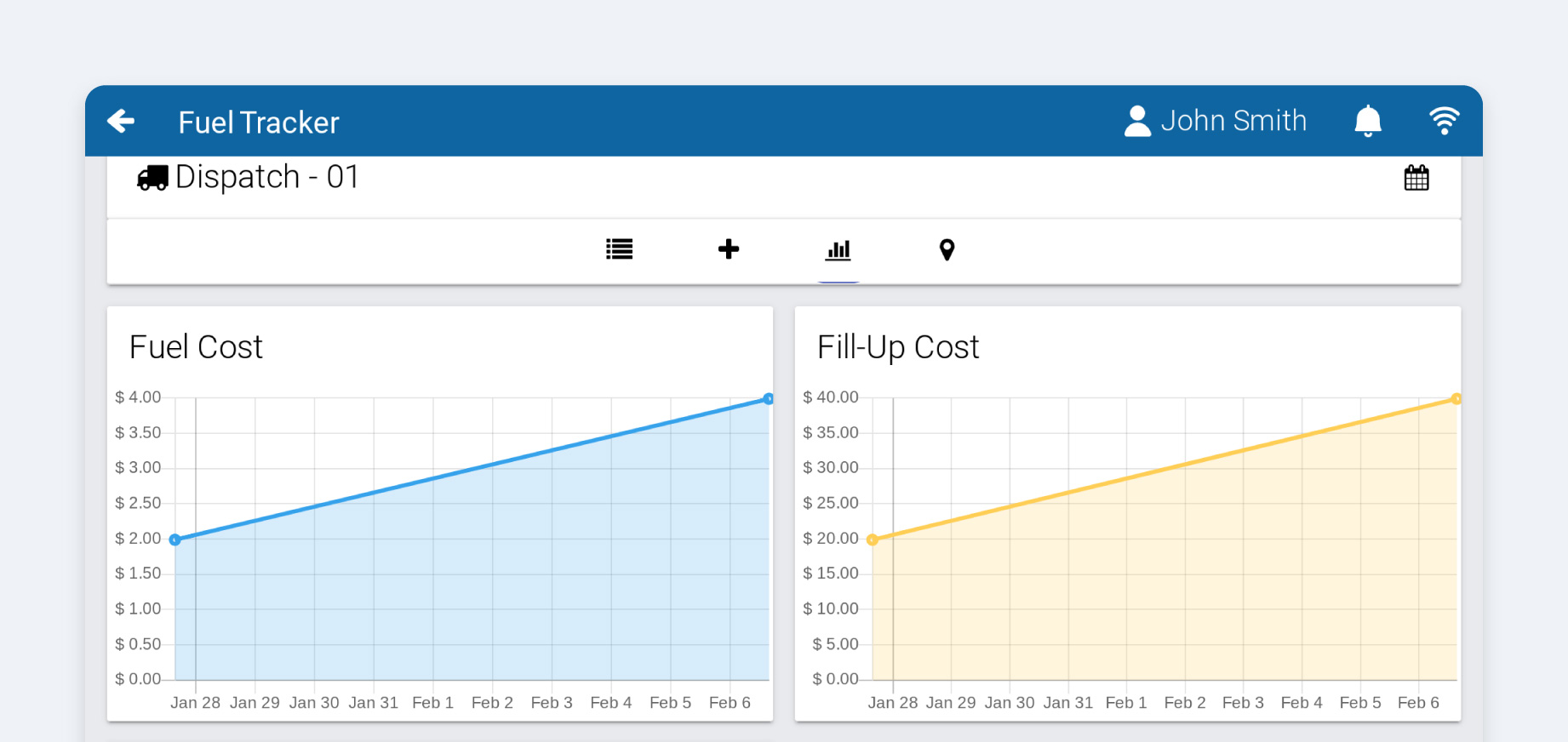
Fuel Tracker is a free, easy-to-use solution that works seamlessly with Geotab Drive. It's ideal for companies already using Geotab products who want to add fuel tracking to their existing system.
App features include:
- Fuel cost tracking (monthly and per fill-up)
- Map of fuel purchases
- Integratable with IFTA and Fill-Ups reports
- Track purchases at the pump or using receipts
Pros | Cons |
| Free | Doesn’t integrate with fuel cards |
| Editable fuel transactions | |
| Automatically integrates with other software. |
BlueArrow Fuel
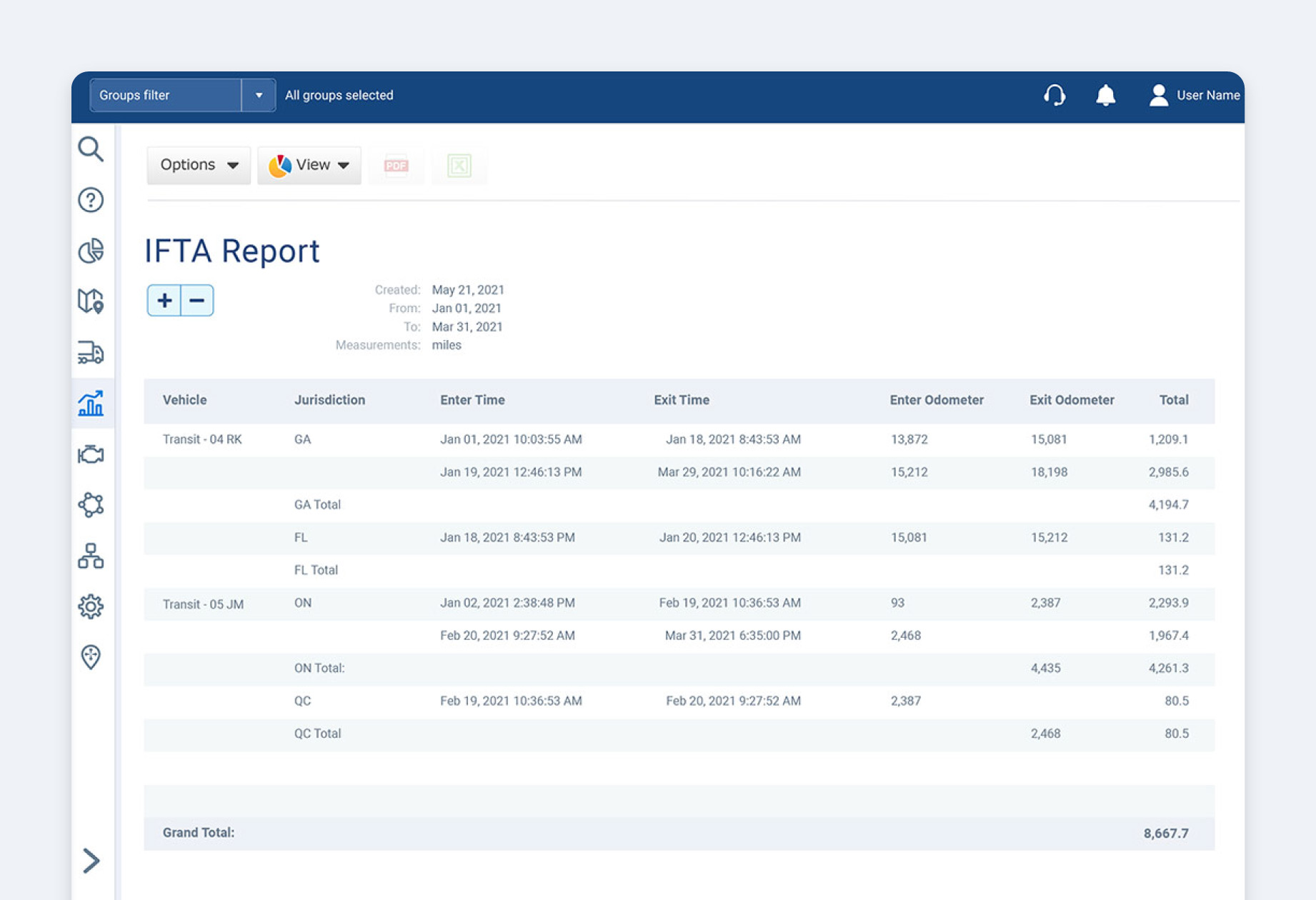
BlueArrow Fuel is a fuel tracking software that integrates with various fuel cards. The software automates fuel transaction reporting and integrates with Geotab’s IFTA reporting. It is best for organizations that manage fuel card misuse and time theft.
App features include:
- Automatic alerts for location or fuel inconsistencies
- Automatic time/location confirmations for vehicles
- White labeling options
Pros | Cons |
| Works with many fuel cards | Higher than average cost |
| Automatic alerts for potential time theft or fuel card misuse | Complex features not necessary for small fleets |
| Integrates with Geotab IFTA reporting | |
| Reduces fuel transaction report inconsistencies |
Car IQ Pay
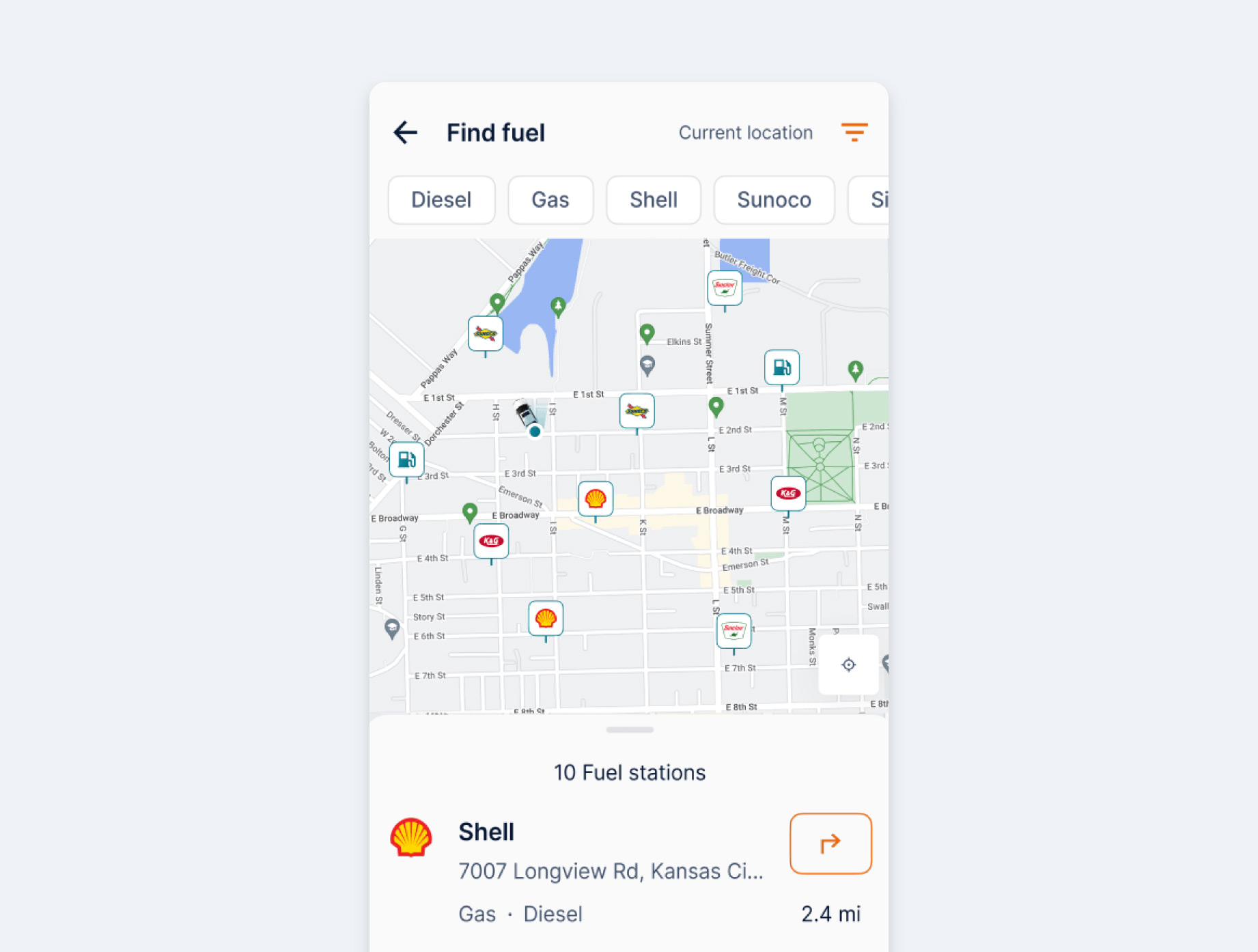
Car IQ Pay is a digital payment platform that eliminates fuel card needs. By integrating with Geotab’s vehicle data, this mobile app securely validates merchant fuel payments. It is best for businesses looking to transition to mobile payments.
App features include:
- Fraud protection
- Controls for spending limits
- Fuel Finder map
- Mobile enabled payments
- Cloud-based system
Pros | Cons |
| Convenient mobile payments | Doesn’t cover all vehicle expenses |
| Seamless integration with Geotab vehicle data | Requires mobile device for payments |
| No additional hardware required | |
| Eliminates the need for fuel cards |
Coast
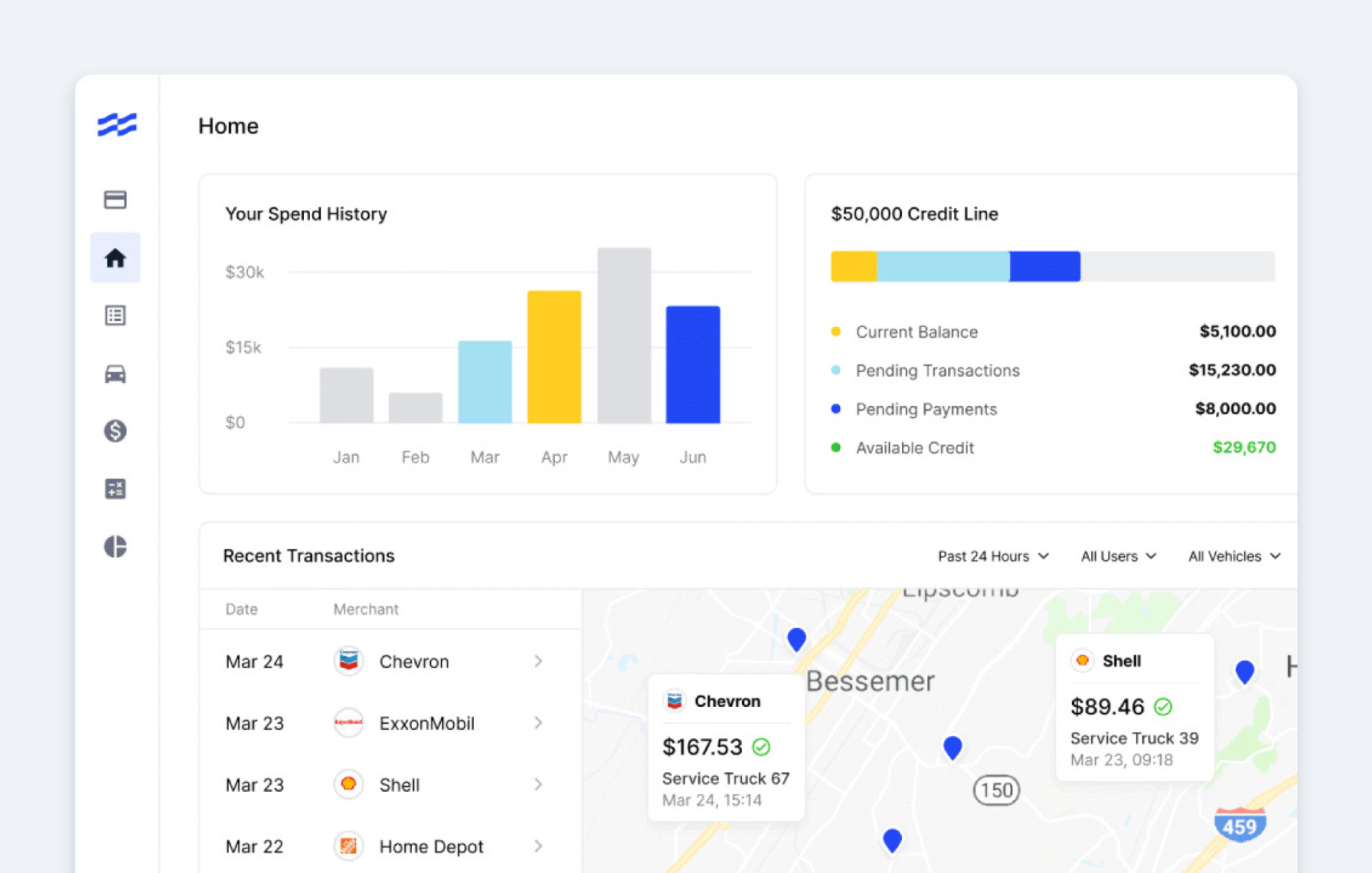
Coast is a Visa fuel card provider with sophisticated expense monitoring software that integrates with other fleet management software, including Geotab for deeper fuel insights. It works best for businesses that want to incorporate other fleet management software with their fuel cards.
App features include:
- Fraud protection using Geotab’s GPS tracking data
- Automated odometer collection
- Fuel efficiency tracking
Pros | Cons |
| Reduce fraud risk | No mobile payment options |
| Precise fuel purchase tracking | Limited advanced analytics |
| User-friendly interface |
FuelBI
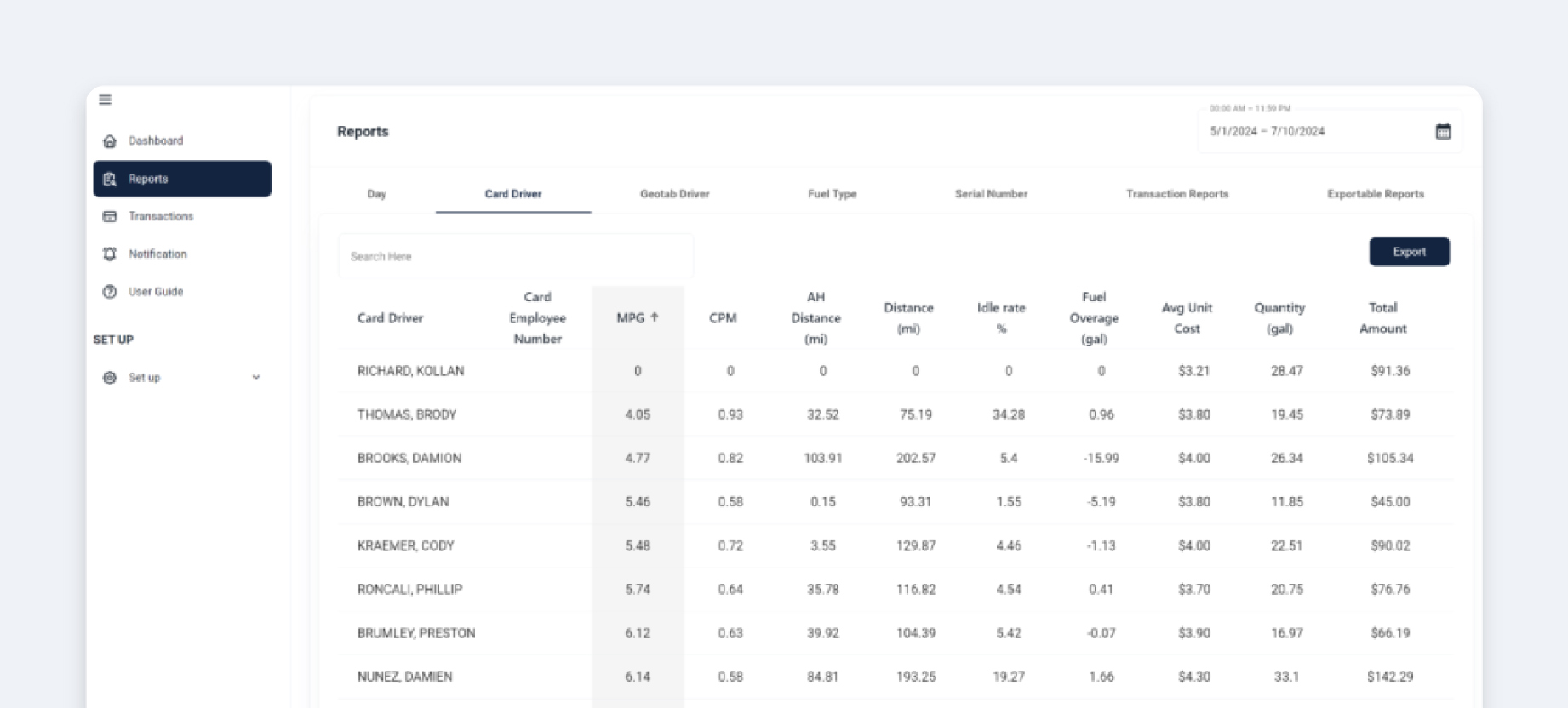
FuelBI is a fuel card integration software that works with many card providers. It integrates with other fleet management software, including Geotab, to provide precise vehicle tracking and advanced fleet analytics. It works best for businesses that want advanced control over fuel reporting and an automated fuel management system.
App features include:
- Advanced fuel and vehicle analytics
- Manual fuel transaction imports
- Fraud protection
Pros | Cons |
| Automated fuel card integration | May not support your fuel card provider |
| Customizable reporting | |
| Cost-effective |
Fuel Card Integration
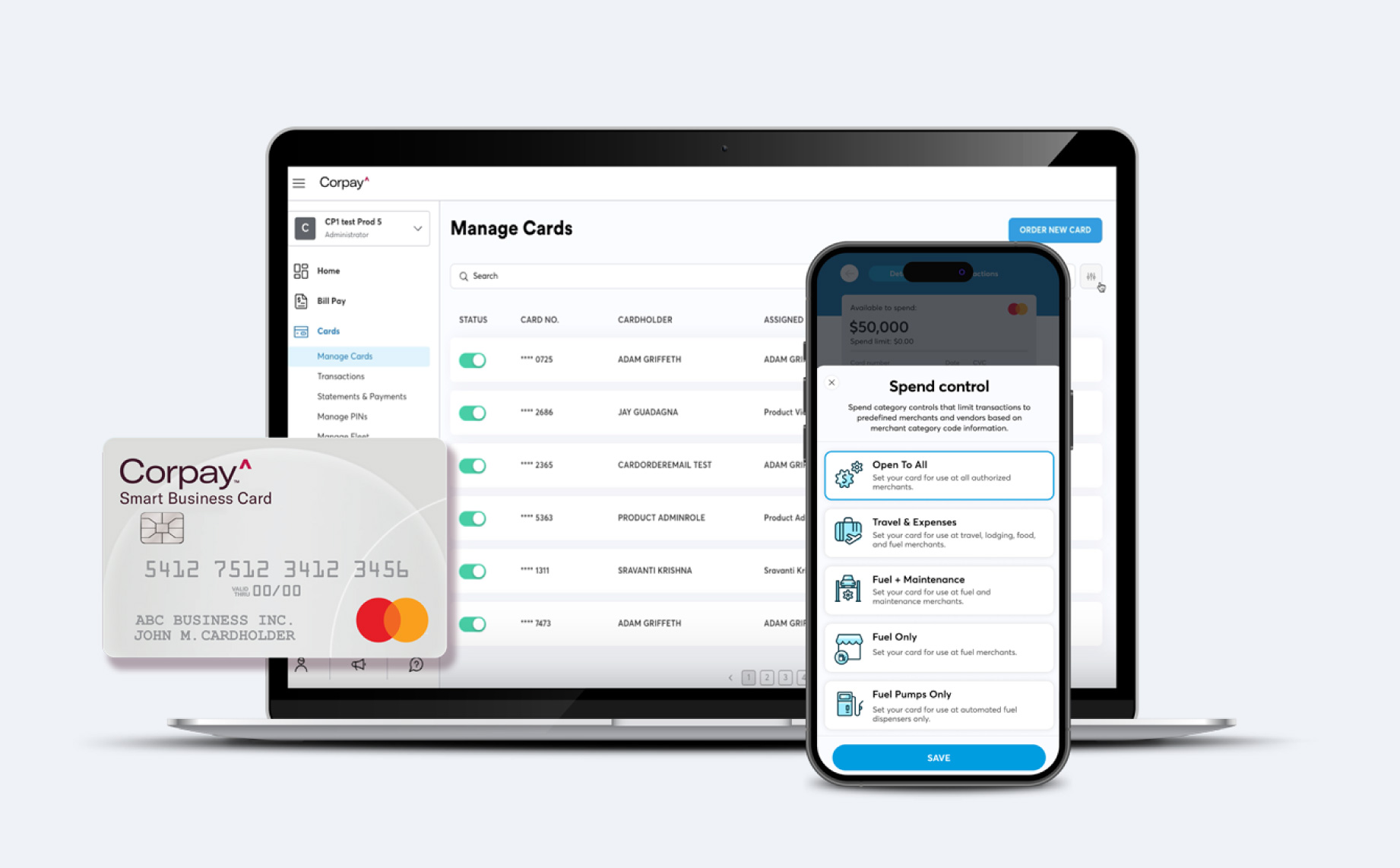
Fuel Card Integration is a fuel card and program that uses telematics data from Geotab to track vehicle locations during purchases, reducing fraud risks. It is great for companies looking to integrate fuel cards with other telemetric data and reduce their fraud risk.
App features include:
- Set spending limits
- Enhance purchase security with driver authentication
- IFTA-compliant fuel purchase tracking and reporting
Pros | Cons |
| Reliable fraud protection | Requires using Fleetcor fuel card |
| Detailed reporting capabilities | |
| Customizable spending limits |
AtoB
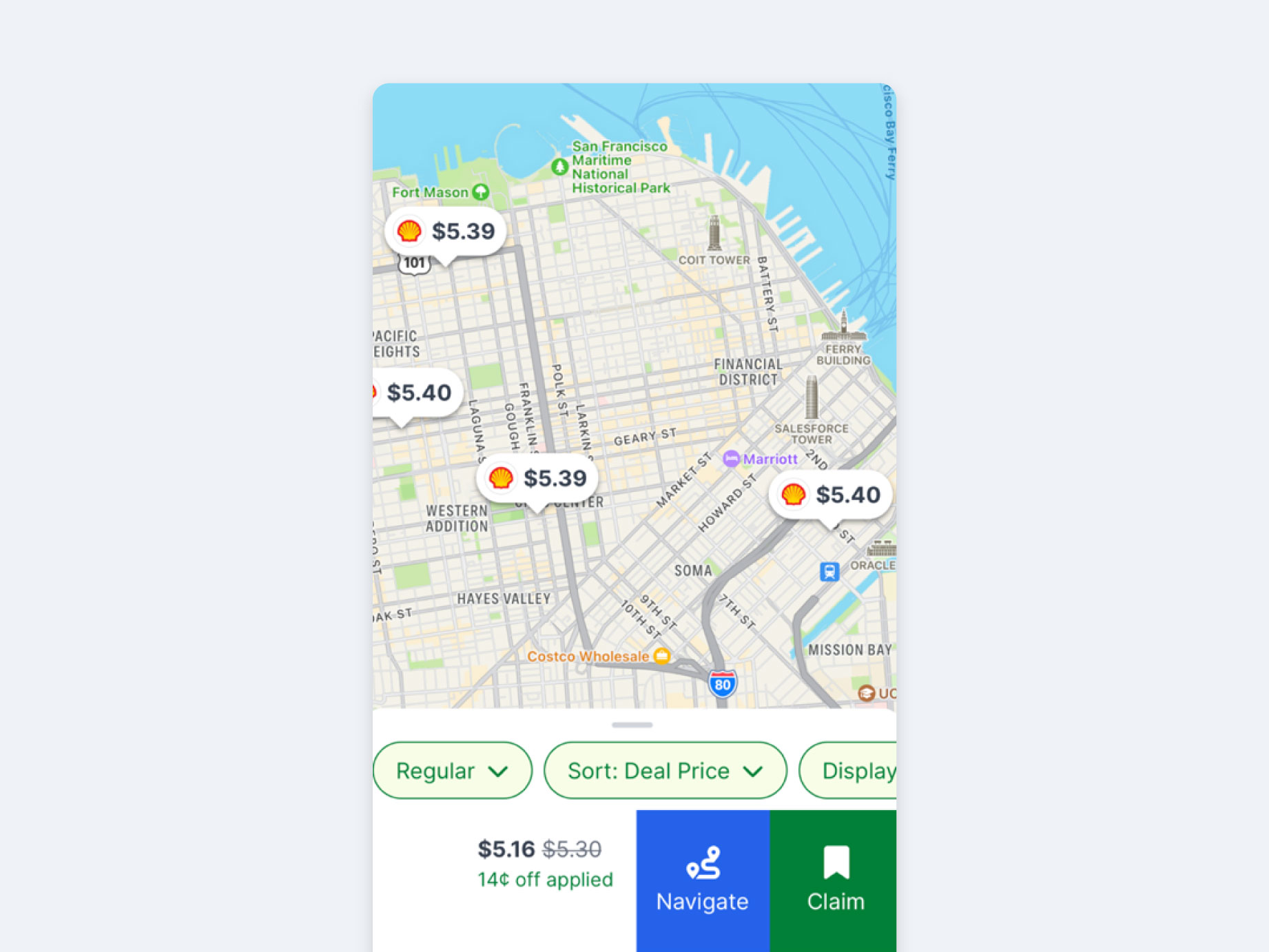
AtoB is a Visa fuel card and software offering solutions for small and over-the-road fleets. It is great for businesses looking to consolidate payment management into one source that offers payroll features. AtoB can integrate with different telematics providers, including Geotab.
App features include:
- Fraud protection
- Fuel discounts
- AtoB FuelMap
Pros | Cons |
| Accepted at many gas stations | Card only works on fuel and repair purchases |
| Allows you to consolidate payment software | |
| Easy-to-use app |
Utilimarc GHG Emissions Reporting
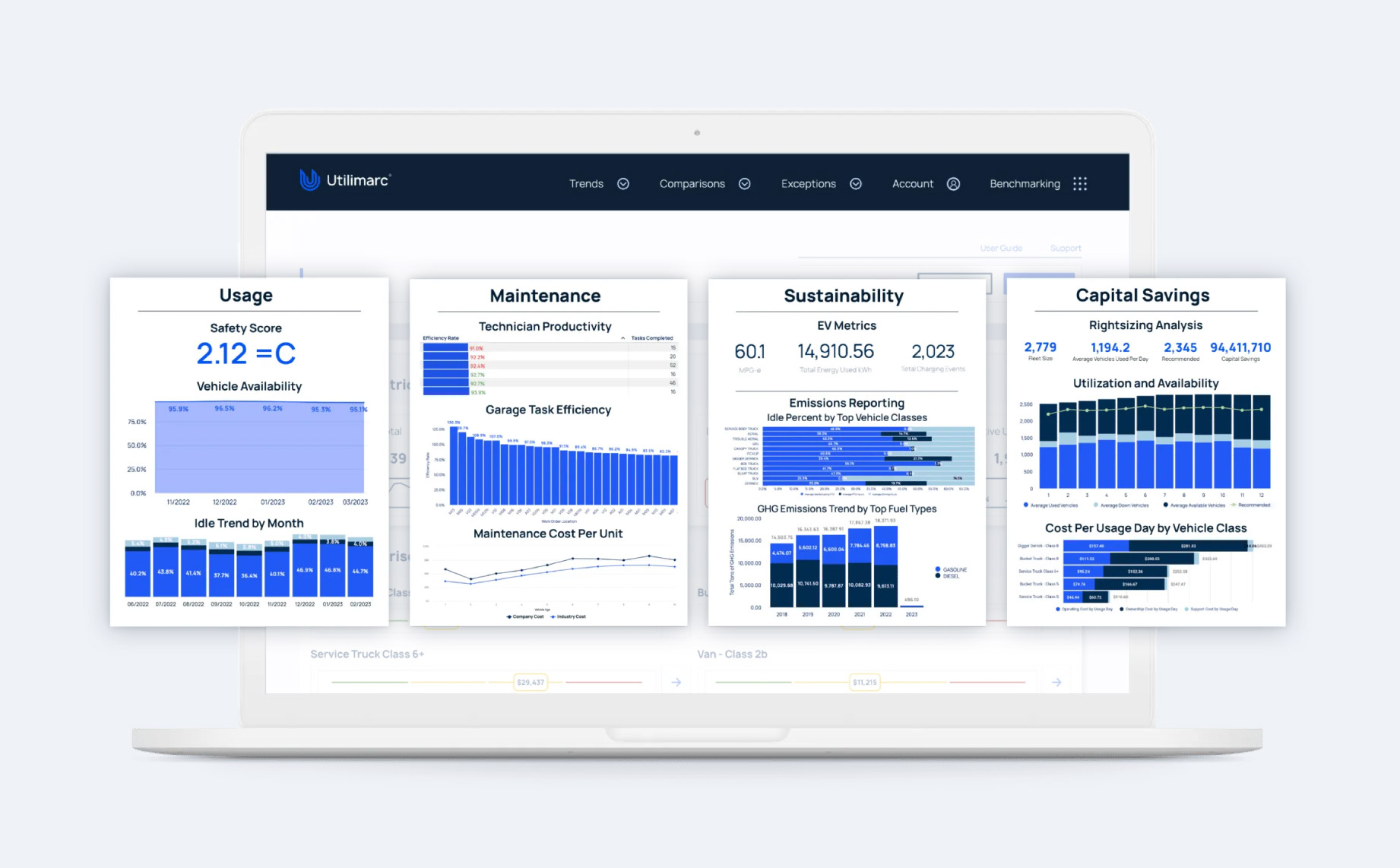
Utilimarc GHG Emissions Reporting is a reporting software that uses data to reduce fuel emissions. The report lets you set emission goals and track your fleet’s progress. It is best for organizations looking to reduce emissions and support sustainability initiatives.
App features include:
- Advanced emissions reporting
- Real time emissions performance
- Benchmark your emissions performance against industry standards
Pros | Cons |
| User-friendly dashboard | Specifically focused on emissions over fuel efficiency |
| Optimize fuel usage | |
| Integrates with Geotab’s telematics data |
True Fuel
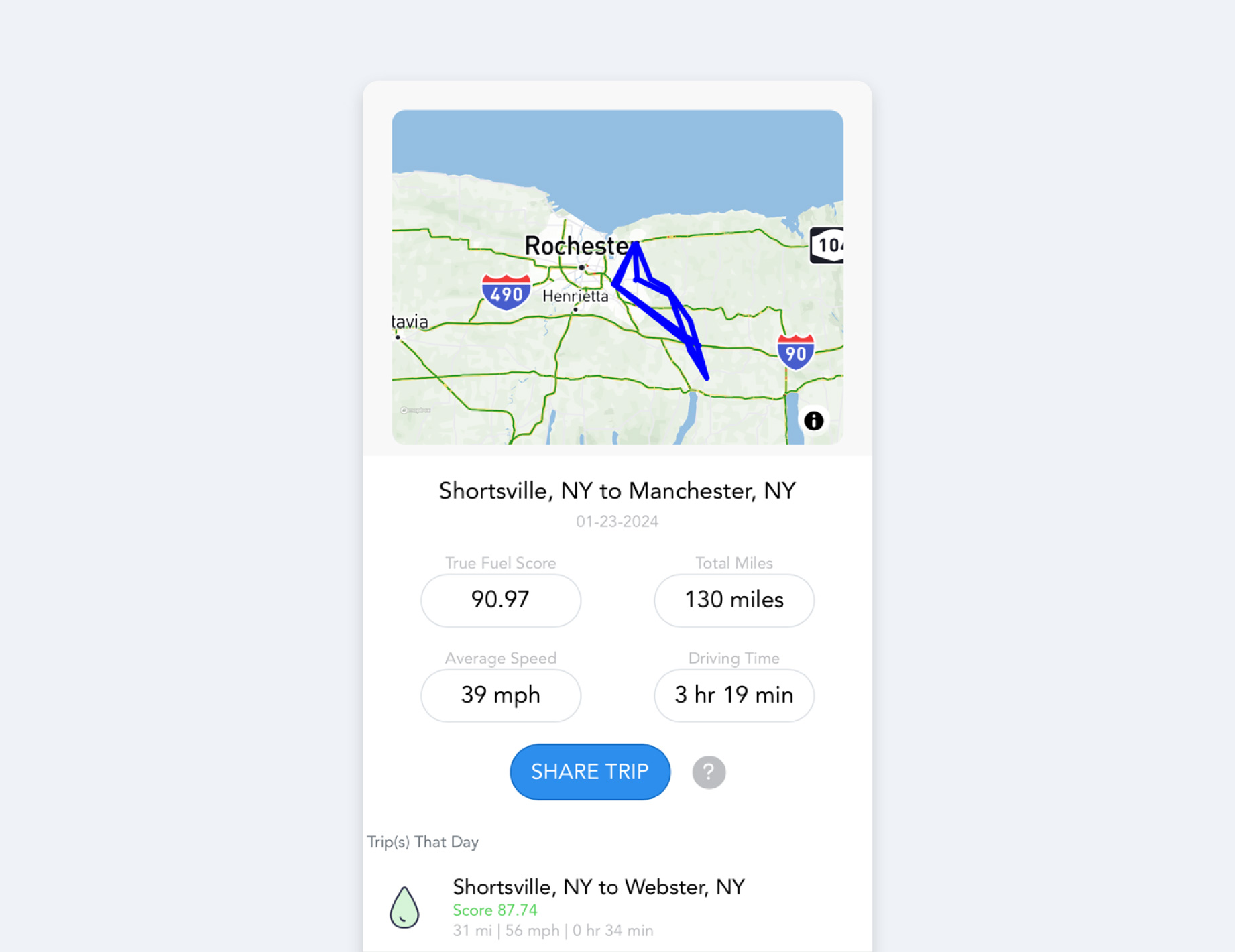
True Fuel is an analytics software that integrates with Geotab’s API to provide actionable insights into fuel efficiency based on driver performance. It is great for businesses looking to improve fuel efficiency by adjusting driver behaviors.
App features include:
- Automated driver scorecard with training solutions
- Actionable reports based on fuel loss
Pros | Cons |
| Easy to use | Reporting focuses on driver behavior |
| Quantify fuel loss from data | |
| Assess driver fuel efficiency |
Idle Smart
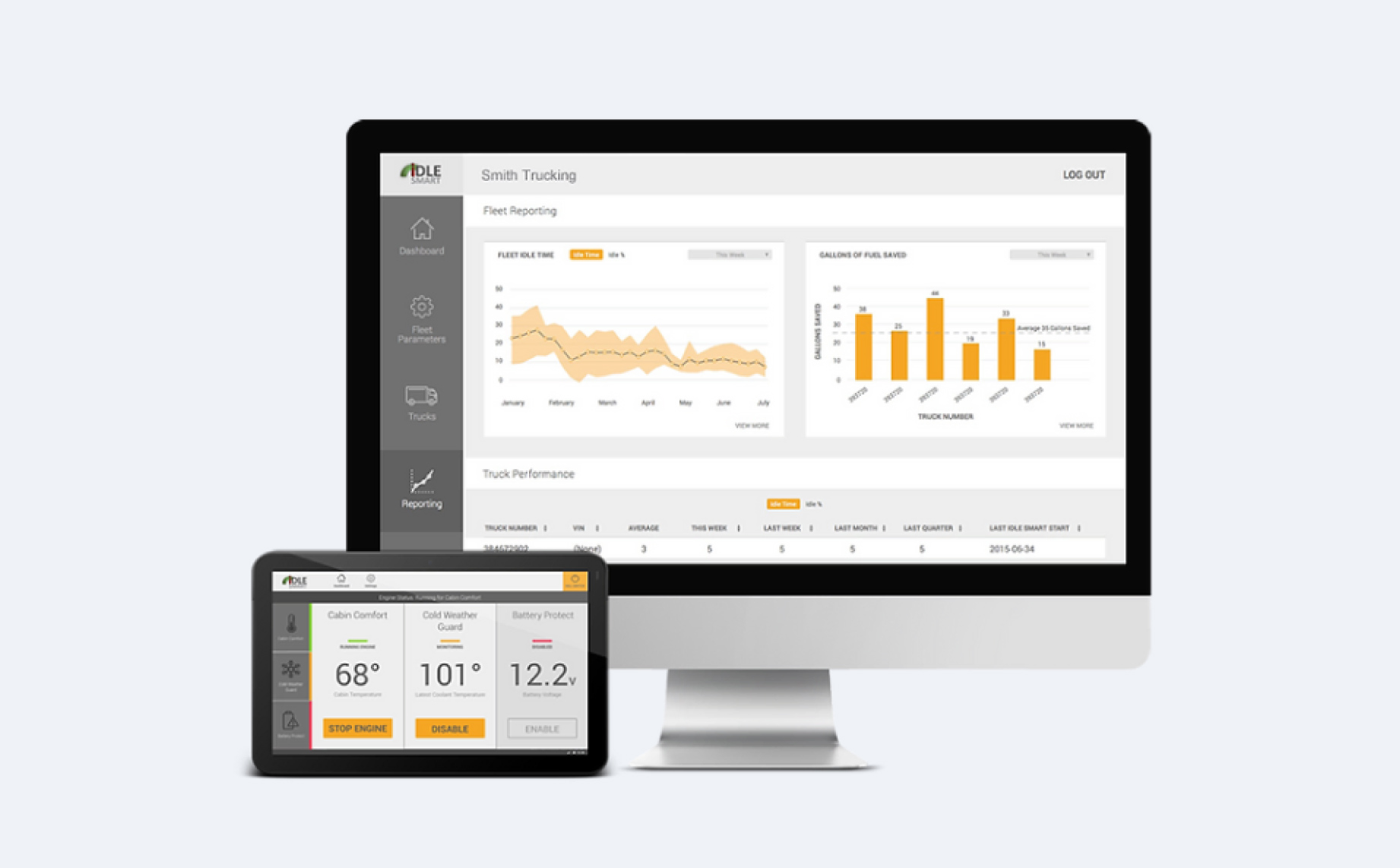
Idle Smart is a fuel management hardware solution focused on reducing idle time, reducing fuel consumption and saving on fuel costs. It integrates into MyGeotab™ to provide data insights into idling. Idle Smart works best for businesses that are focused on reducing idle time in their fleet.
App features include:
- Automatically engine start/stop
- Controls cabin temperature
- Reduces battery consumption
Pros | Cons |
| Improves fuel efficiency | Only provides insight into idle time |
| Reduces idle time | High initial cost for fleets |
| Easy to install | |
| Lightweight |
What to look for in a fuel management system for fleets
When choosing a fuel management system, the size and needs of your fleet are important considerations. While no two fuel management systems are the same, they should all include some of these features:
- Real-time vehicle and fuel tracking
- Fraud detection
- Detailed reporting and analytics features
- Fuel card management and integration
- Driver behavior monitoring
- Telemetrics system integration
- Easy-to-use platform
Optimize your fuel efficiency with Geotab’s fleet fuel management solutions
Driver-related costs are a top concern for 85% of truck drivers, causing many fleets to look for efficiency solutions such as switching to hybrid vehicles. Fuel management systems are another useful solution for increasing fleet efficiency while reducing fuel costs. Use this guide to find the best fit for your fleet.
Geotab's fuel management solutions help you proactively reduce fuel costs.
Subscribe to get industry tips and insights
Frequently Asked Questions
Active fuel management is a hardware solution for engines that increases fuel efficiency by turning off half the cylinders of a V6 or v8 engine during light load conditions.
Fuel management units regulate fuel pressure in an engine, making sure the engine receives the correct amount of fuel for efficient performance.
Truck fuel management systems use telemetrics to measure fuel usage and efficiency. This data is then relayed in real-time to web-based dashboards or mobile apps.
The Geotab Team write about company news.
Table of Contents
Subscribe to get industry tips and insights
Related posts


How to avoid high downtime costs for construction fleets
March 10, 2025
2 minute read

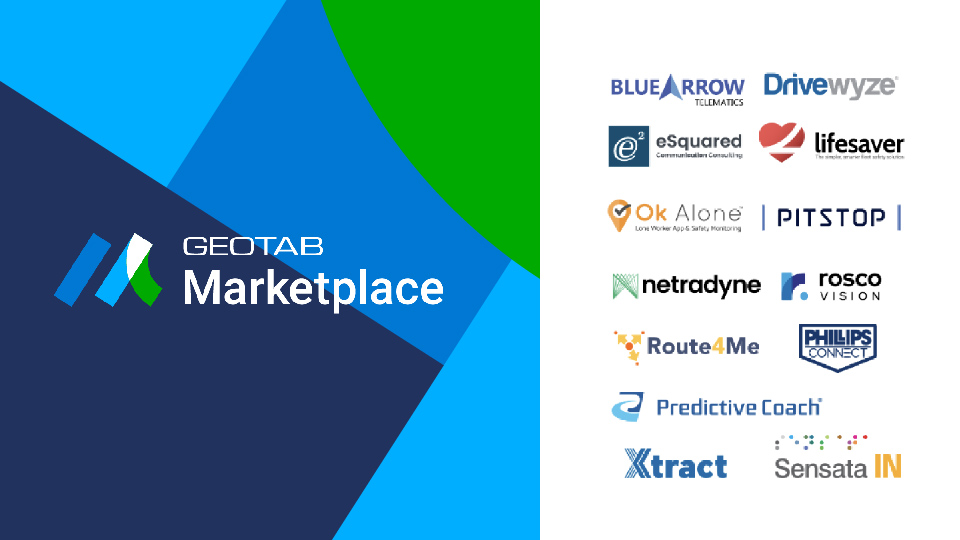
Empowering Choice: The Power of Collaboration in Our Marketplace
January 15, 2025
1 minute read
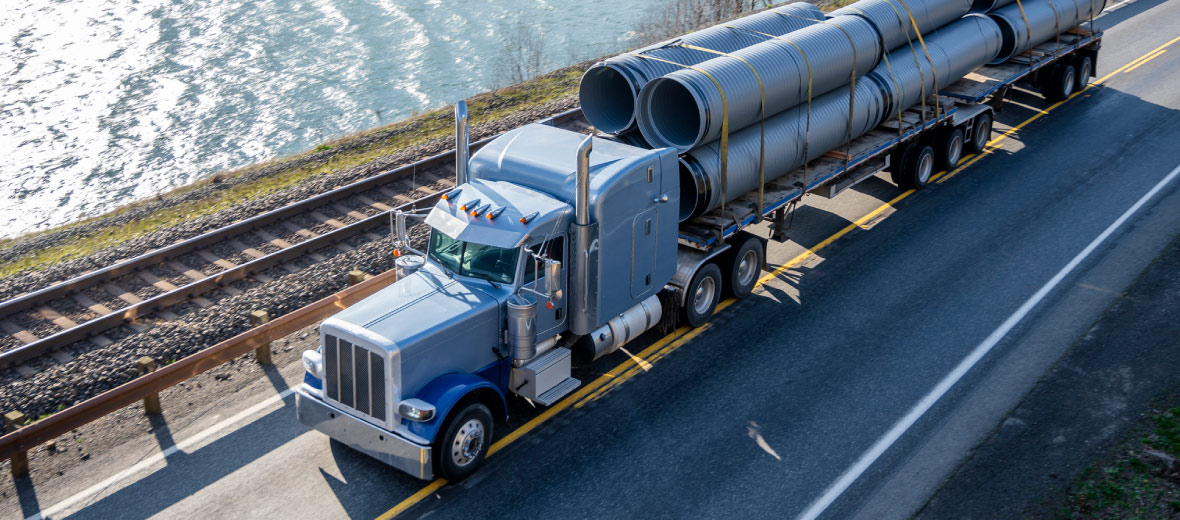
Top 7 Transportation Management Systems (TMS) Software
December 5, 2024
7 minute read

What is route optimization? A guide to improving fleet efficiency
December 4, 2024
4 minute read